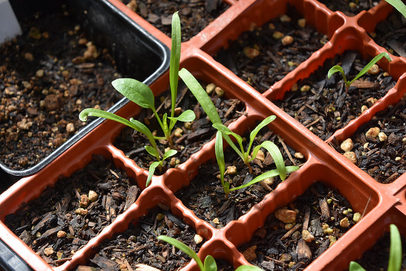Quaqtaq, Nunavik

Year(s) Funded: 2014-2015
Topic Area: Food Security Contact: Bobby Deer, Tuvaaluk Landholding Corporation ([email protected]) Partners: Tuvaaluk Landholding Corporation, Makivik Corporation Website: https://sites.google.com/site/tuvaaluktest Title: Assessing the Feasibility of a Small Scale Hydroponic Rotating Garden as an Adaptation Action with Respect to Community Food Security
Action: This project assessed the feasibility of an indoor small-scale rotating hydroponic garden to grow several vegetables, fruits, and herbs in the remote community of Quaqtaq, Nunavik. A hydroponic system was purchased for the project, which can house from 80-300 plants, it is small enough to fit into a standard size closet and existing space (i.e. warehouse space) in northern communities where infrastructure is expensive to build. Results: The first test of the small-scale rotating hydroponic garden, 60 heads of lettuce was germinated and the hydroponic system was installed. Several students along with their science teachers maintained the unit for the first round of testing. Upon project completion, the unit was moved to Tuvaaluk Landholding Corporation to the school in Quaqtaq which allows for more students to get involved in future grow cycles. During the project, local studies identified several other vegetables that they will assess in the hydroponic unit including peppers, broccoli and several different varieties of lettuce. Outputs: A database capturing baseline data of monitored environmental variables (temperature, RH, Co2, photo synthetically active radiation, barometric pressure, light intensity, energy/power usage, moisture content and leaf wetness) and plant biomass (harvest statistics) of fruits/vegetables grown was created. A summary poster of the project including key items from interviewers and key growing techniques was prepared for the project. |
